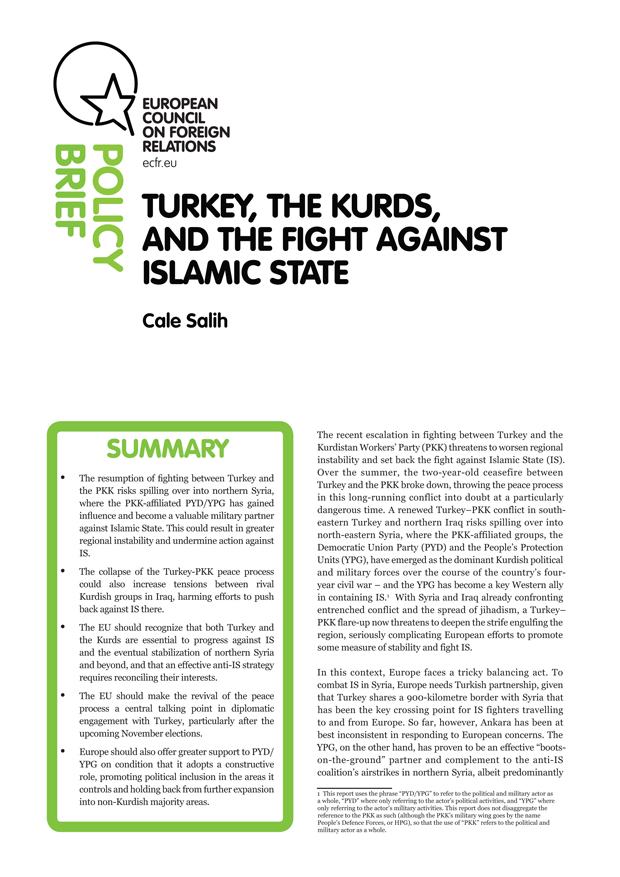Turkey, the Kurds and the fight against Islamic State
Europe must prioritise diplomatic support for peace between Turkey and the Kurds as a pre-requisite for a successful strategy against Islamic State
Europe must prioritise diplomatic support for peace between Turkey and the Kurds as a pre-requisite for a successful strategy against Islamic State.
Since 20 July 2015, the PKK has killed at least 113 security personnel and Turkey claims to have killed over a thousand PKK fighters. The coincidence of new Turkish airstrikes against Kurdish targets and Ankara’s greater participation in anti-IS activities has led many to speculate that the US and its western partners have bumped the peace process down its list of priorities, choosing to focus instead on extracting greater Turkish security cooperation that could result in more short-term gains against IS.
In her report, Salih asserts that, while Turkish cooperation is undeniably valuable for the anti-IS coalition, a policy that traded participation against IS for the breakdown of the PKK-Turkey peace process would risk the spill-over of that conflict into northern Syria, weakening one of the coalition’s only effective non-Islamist partners on the ground in northern Syria (the YPG), and making it ever more difficult for the coalition to pull together a coordinated fight against IS.
Salih calls for European diplomatic attention to supporting the revival of the Turkey-PKK peace process, and greater political engagement with the PYD and conditional support to the YPG in the areas it already controls.
Stronger backing to the PYD/YPG should be tied to conditions that: dissuade the YPG from making unilateral advances into additional territories that are not predominately Kurdish and excluding FSA-affiliated partners from meaningful decision-making roles; discourage any policies that could result in the displacement of local Sunni inhabitants; and encourage the PYD to establish governance institutions inclusive of non-PYD affiliated Kurds, Arabs and other local ethnic groups in the areas it already controls.
The European Council on Foreign Relations does not take collective positions. ECFR publications only represent the views of their individual authors.



